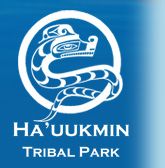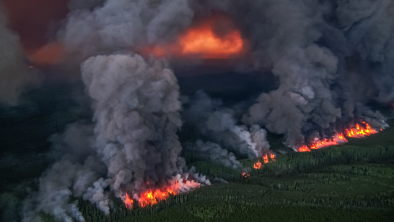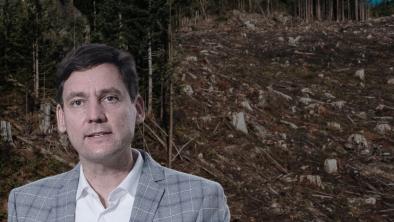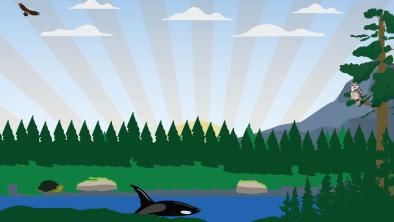First Nations, Academics Discuss Tribal Parks
Monday, September 28, 2009
westcoaster.ca

TOFINO — Members of a local First Nation who are developing plans for a tribal park in Clayoquot Sound have piqued the interest of an international group of scientists and academics.
Members of the Tla-o-qui-aht Nation Building Program discussed their plans with the Resilience Alliance during meetings sponsored by Ecotrust Canada at the Clayoquot Field Station Saturday.
The Resilience Alliance is an international organization of scientists and thinkers who study the relationships between social and ecological systems.
“I think the significant step was that there was recognition and appreciation of the unique undertaking that the tribal parks initiative represents and the willingness on the part of this group of international thinkers to support that and encourage that and maybe help us raise resources to keep that momentum going,” said Ian Gill, president of Ecotrust Canada.
The Tla-o-qui-aht are currently working on plans for a tribal park. The park would see innovative watershed and land-use plans create new economic development in Clayoquot Sound.
Gill said about 45-50 people – from such places as Africa, Australia, Sweden, Alaska and even Vancouver Island universities – attended the talks.
“The Resilience Alliance came to Clayoquot Sound to work with tribal parks as a bit of a think tank and to get an international perspective on some of the challenges and opportunities that tribal parks is faced with,” said Eli Enns, director of the Tla-o-qui-aht Nation Building Program.
Phil Dearden, chair of the University of Victoria’s geography department, said he attended the event because he believes in tribal parks.
“It’s happening throughout Asia where I work, it’s happening in Africa where I work and it’s about communities getting together and doing things differently that involve both conservation and economic development in a complementary sense,” said Dearden.
“And so I think the tribal parks is a very good initiative where we can put those things together, and so it moves us along in trying to get a more sustainable economy.”
Gill said the alliance have some great feedback on economic diversity.
“I think that what they were saying to us today [Saturday] was you’ve got great ecological diversity here, you’ve got great cultural diversity here, the real challenge here, and I think we all know that, is to build economic diversity so that when one thing goes bad, the whole system doesn’t go bad,” said Gill.
“We need a great deal more diversity in the economy of Clayoquot Sound. I think we all know that. That’s what we’re striving to achieve.”
Members of the Tla-o-qui-aht Nation Building Program discussed their plans with the Resilience Alliance during meetings sponsored by Ecotrust Canada at the Clayoquot Field Station Saturday.
The Resilience Alliance is an international organization of scientists and thinkers who study the relationships between social and ecological systems.
“I think the significant step was that there was recognition and appreciation of the unique undertaking that the tribal parks initiative represents and the willingness on the part of this group of international thinkers to support that and encourage that and maybe help us raise resources to keep that momentum going,” said Ian Gill, president of Ecotrust Canada.
The Tla-o-qui-aht are currently working on plans for a tribal park. The park would see innovative watershed and land-use plans create new economic development in Clayoquot Sound.
Gill said about 45-50 people – from such places as Africa, Australia, Sweden, Alaska and even Vancouver Island universities – attended the talks.
“The Resilience Alliance came to Clayoquot Sound to work with tribal parks as a bit of a think tank and to get an international perspective on some of the challenges and opportunities that tribal parks is faced with,” said Eli Enns, director of the Tla-o-qui-aht Nation Building Program.
Phil Dearden, chair of the University of Victoria’s geography department, said he attended the event because he believes in tribal parks.
“It’s happening throughout Asia where I work, it’s happening in Africa where I work and it’s about communities getting together and doing things differently that involve both conservation and economic development in a complementary sense,” said Dearden.
“And so I think the tribal parks is a very good initiative where we can put those things together, and so it moves us along in trying to get a more sustainable economy.”
Gill said the alliance have some great feedback on economic diversity.
“I think that what they were saying to us today [Saturday] was you’ve got great ecological diversity here, you’ve got great cultural diversity here, the real challenge here, and I think we all know that, is to build economic diversity so that when one thing goes bad, the whole system doesn’t go bad,” said Gill.
“We need a great deal more diversity in the economy of Clayoquot Sound. I think we all know that. That’s what we’re striving to achieve.”


